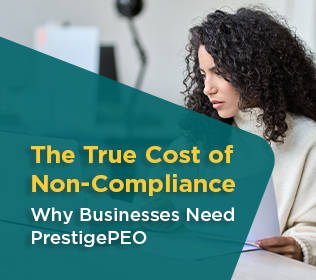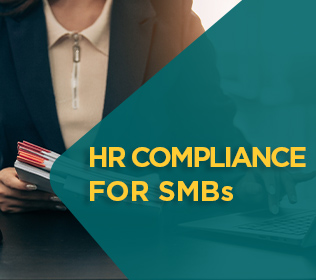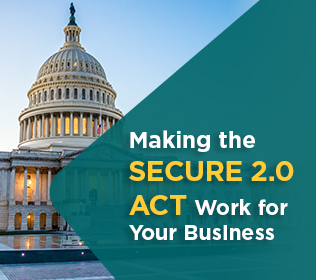
Navigating The Challenges And Opportunities For HR
The ongoing COVID-19 pandemic continues to uncover new and unprecedented challenges for the global business community. For small and mid-size businesses (SMBs) especially, it can be difficult to navigate through the various waves of adaptation required to move forward in a world that is suddenly very different. From managing payroll for a modified workforce to ensuring workplaces are fully compliant and safe for employees, there is a lot to consider. Keep reading to learn more about the challenges and opportunities for HR challenges SMBs currently face in light of COVID-19, and the opportunities they present for improvement.
Scenario #1
Challenge: Financial Uncertainty
Opportunity: Leverage Federal Assistance Programs for Small Businesses
While helpful measures, the various federal assistance programs are complex and require a lot of administrative effort. By partnering with a PEO, HR SMBs receive the benefit of dedicated support to help make sense of each legislative change, as well as step-by-step guidance in completing required paperwork like loan applications.
Scenario #2
Challenge: Workforce Modifications
All these modifications lead to mounting administrative workloads as all changes must be properly recorded and implemented. Changes in an employee’s wage and hour status, for example, can impact payroll or an employee’s benefits eligibility. It’s vital for employers to log and address all changes in employment status while keeping up with shifting legal requirements.
Opportunity: Streamline Payroll
Scenario #3
Challenge: Managing a Workforce During COVID-19
Reopening workplaces will require employers to adhere to a wide range of new health and safety regulations, including new sanitization procedures, requirements for personal protective equipment (PPE) such as face coverings, and employee health monitoring. Employers will also have to reconsider their hiring practices, ensuring they are not discriminating against or causing unreasonable distress to high-risk applicants or employees.
Opportunity: Improve Business Practices and Prepare for the Future
Enabling a remote workforce is one way for businesses to adjust to a changing world while retaining productivity, or perhaps even improving it. By empowering employees to work from home, businesses can bypass many of the operational challenges presented by COVID-19 and ensure preparedness for any other potential crises. In instances where remote work isn’t entirely possible, businesses now have the chance to implement health and safety best practices that previously might have gone ignored. And with rising public awareness around all kinds of economic and social justice issues, it’s more important than ever for businesses to ensure that hiring practices are fair, equitable, and fully compliant. All efforts to fortify business practices now will only serve to better prepare businesses for the future.
Dealing with a global pandemic is a new challenge for every business. Though it’s been a difficult few months, COVID-19 uncovers critical opportunities for businesses to address some of the most pressing modern challenges and opportunities for HR and implementing effective solutions. Contact us to learn more!




